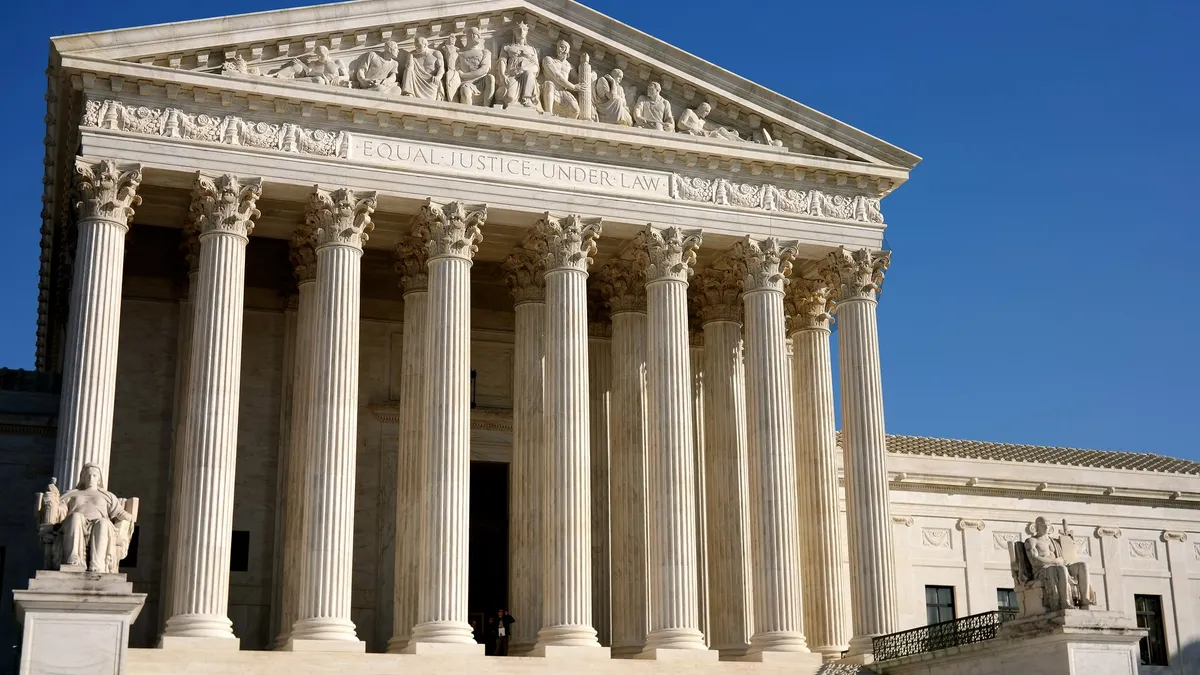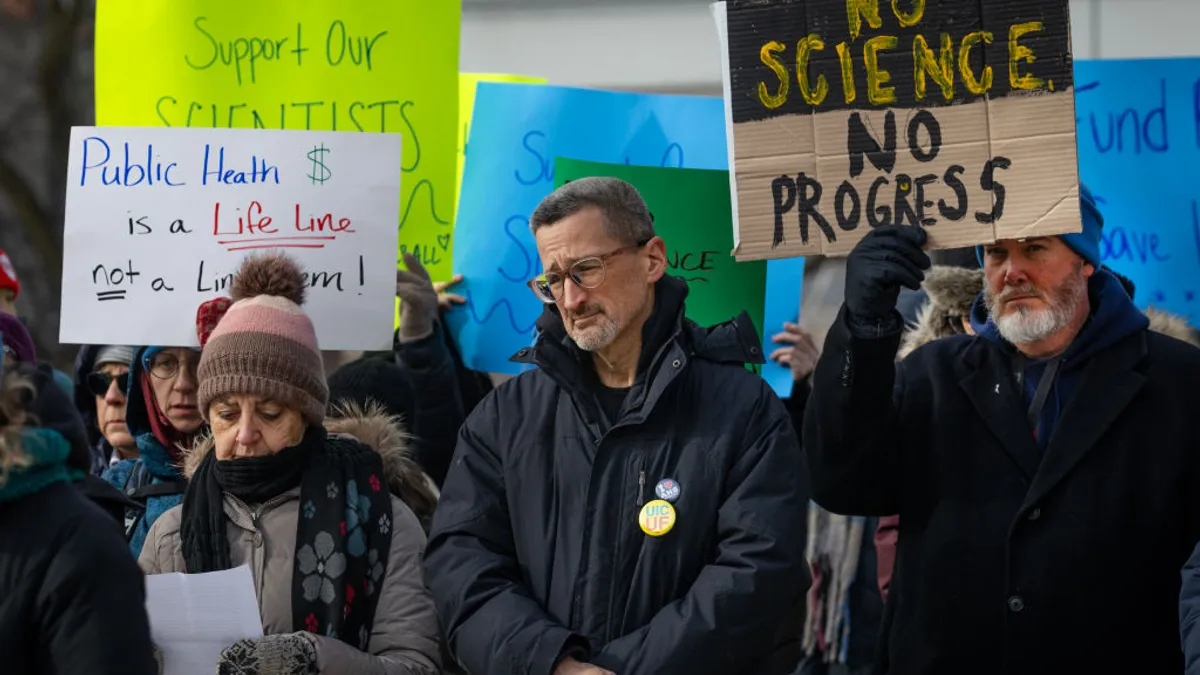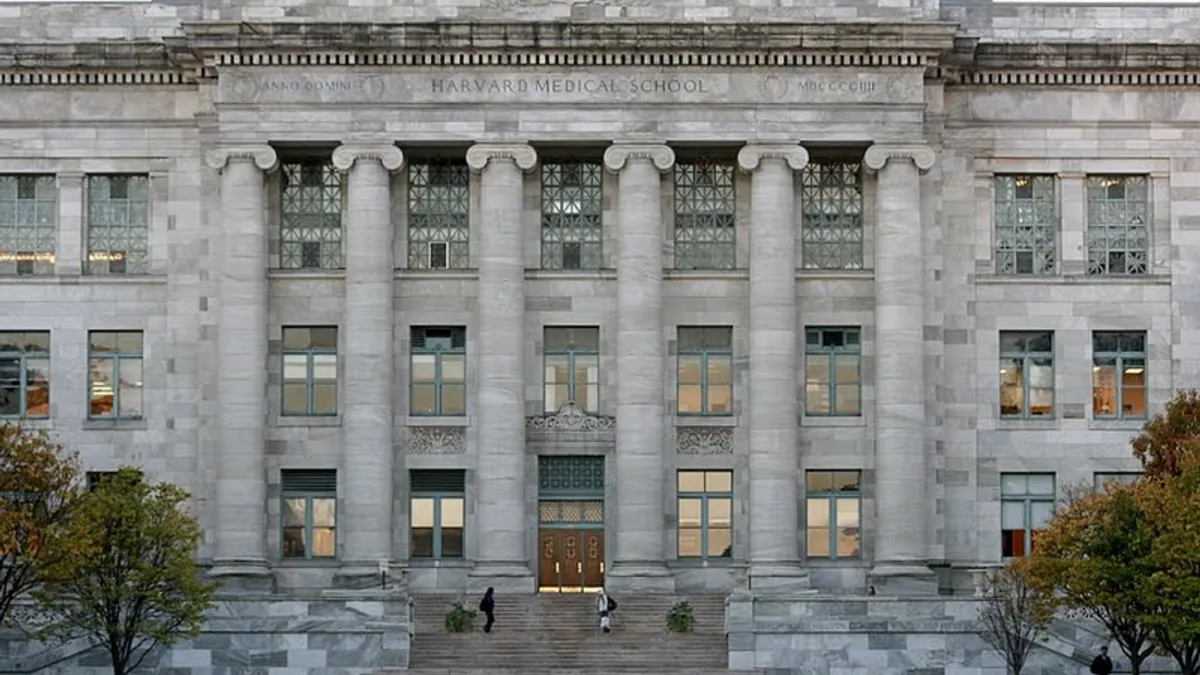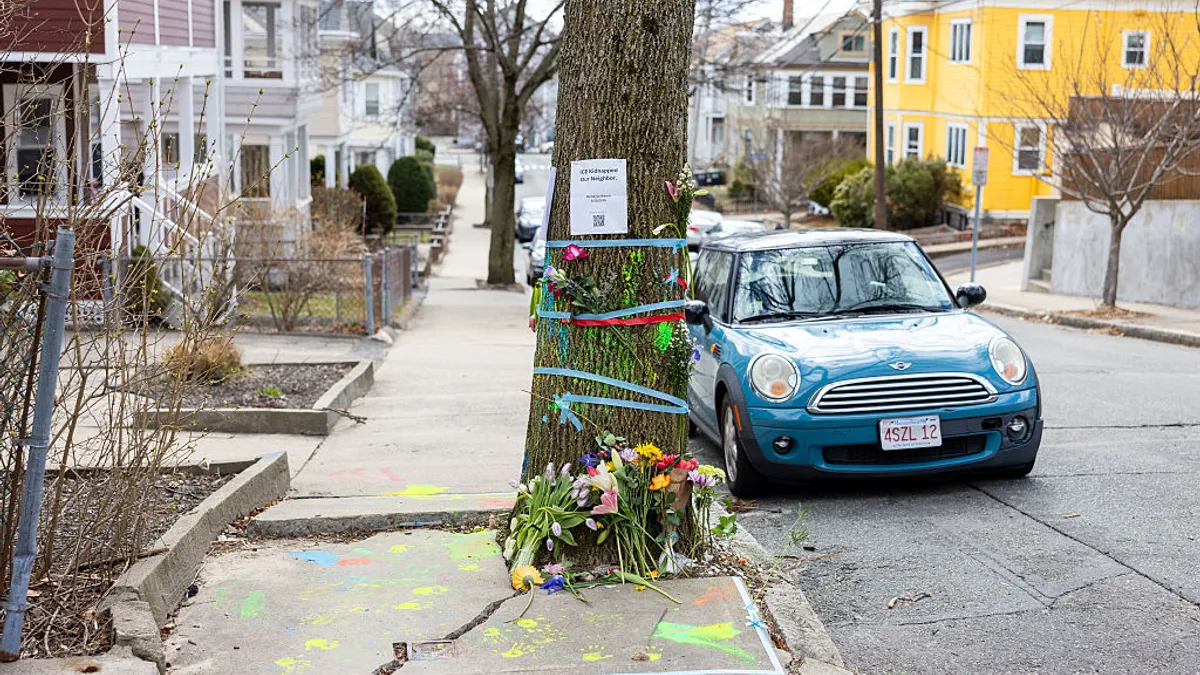Pending lawsuits stand to reshape the higher education landscape in the next year. The U.S. Supreme Court, which now has a strong conservative majority, is expected to rule on a handful of cases concerning higher education.
That includes lawsuits over new policies, such as the Biden administration’s attempted plan to forgive broad amounts of student loan debt, and longstanding practices, such as affirmative action in college admissions.
Legal challenges have also stemmed from controversial borrower defense to repayment regulations, which allow students to have their debts cleared if their colleges misled them. And more lawsuits could be on the horizon as the Education Department implements an ambitious regulatory agenda that attempts to crack down on for-profit colleges and make it easier for borrowers to have their loans forgiven.
Below, we rounded up five lawsuits to keep tabs on throughout the year.
The state of Biden’s student loan forgiveness plan
Shortly after the Biden administration unveiled a plan to forgive large amounts of federal student loan debt for most borrowers, the program drew a flurry of lawsuits. Federal courts have blocked the administration from carrying out the program, which would forgive up to $10,000 for borrowers who earn up to $125,000 annually and $20,000 for those who received Pell Grants.
So far, the U.S. Supreme Court has agreed to weigh in on two cases.
In one, six conservative states argue that the debt forgiveness plan oversteps the Biden administration’s authority and could rob some of them of their future tax revenue. In another, two college graduates have contended that the plan arbitrarily boxes out some borrowers and that the Biden administration didn’t follow required regulatory steps.
The Supreme Court plans to hear the cases in February. It also declined to lift the court orders blocking student loan forgiveness.
Will the Sweet settlement be appealed?
In November, a federal judge approved a whopping $6 billion settlement agreement between the U.S. Department of Education and borrowers who say the agency improperly handled their borrower defense to repayment claims. The borrower defense rule allows the Education Department to wipe away debts for students who’ve been misled by their colleges.
Under the agreement, the Education Department will automatically clear the debts of around 200,000 borrowers who attended one of 150-plus institutions, most of which are for-profits. The agency also agreed to streamline borrower defense decisions for another 64,000 borrowers.
However, the settlement will likely draw an appeal. Several colleges on the Education Department’s list of institutions opposed the settlement, saying it denies them their due process rights and harms their reputations.
The settlement will take effect if an appeal isn’t filed by Jan. 17, according to the Project on Predatory Student Lending, a group that represented borrowers in the class-action lawsuit.
The fate of race-conscious admissions
The U.S. Supreme Court will likely decide the fate of race-conscious admissions this summer, when it issues opinions on major cases heard this term. The justices are weighing the merits of separate lawsuits challenging admission practices at two institutions — Harvard University and the University of North Carolina at Chapel Hill.
Both lawsuits were brought by the anti-affirmative action group Students for Fair Admissions. Although the details of the cases differ, they target the colleges’ race-conscious practices, arguing they unfairly disadvantage certain students while favoring others.
During oral arguments in October, the conservative justices appeared skeptical about whether affirmative action policies should continue. They repeatedly asked when race-conscious admissions can end, citing a landmark 2003 opinion that preserved affirmative action in higher education but predicted such policies would be unneeded in 25 years.
Given the Supreme Court’s conservative majority, legal experts believe colleges should prepare now for race-conscious admissions to end.
The case will affect only a sliver of selective colleges, as most institutions accept most of their applicants. But it's still important for higher ed and beyond, because the potentially affected institutions tend to be wealthy and give students an inside track to powerful positions in business and government.
DeVry’s lawsuit against the Education Department
DeVry University, a large for-profit college, sued the Education Department in October to try to stop the agency from recouping more than $23 million to cover the cost of debt discharges for students who filed borrower defense claims against the institution. The case could affect how the Education Department applies the borrower defense regulations.
That’s because the lawsuit stems from the Education Department announcing in February that it was discharging debt owed by roughly 1,800 former DeVry University students under the borrower defense rule. It marked the first time the department granted this type of relief to students who attended an institution that is still open and continues to access federal financial aid.
In August, the Education Department attempted to recoup some of those costs from DeVry. The university argues that recoupment is unlawful because the department didn’t say whether it looked into the details of each borrower defense claim and handled the applications as a single group.
“There is no lawful basis for such an act,” the university argued in court filings.
The future of DACA
The fate of Deferred Action for Childhood Arrivals — a program that protects immigrants from deportation if they were illegally brought to the U.S. as children — is once again uncertain. Higher ed officials have been closely watching whether DACA survives, as many of their institutions enroll those children once they reach college age.
In October, a federal appeals court agreed with a district court in Texas that DACA’s creation in 2012 was illegal. However, the three-judge panel has opted to preserve DACA while a lower court considers a new Biden administration rule implemented last year to save the program.
The ruling halted new applications for DACA, affecting roughly 93,000 people, the Texas Tribune reported. But people who already have protections under DACA, which authorizes participants to study and work in two-year blocks, will be able to apply for renewals. Over 800,000 people have been approved for the program in the time it's existed.
In the meantime, the appeals court tasked the lower court, a federal district court, with reviewing the differences between the 2012 executive order that created the program and the 2022 rule that seeks to preserve it.
Attorneys general from nine conservative states have formed a coalition to challenge the Biden administration’s attempt to keep the program, contending that the new version is also unconstitutional.






















